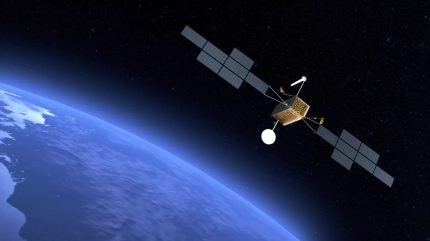
To strengthen national security, the German armed forces, known as the Bundeswehr, have awarded Airbus a €2.1bn ($2.3bn) contract for the SATCOMBw 3 project.
This initiative aims to deploy geostationary satellites and a ground segment to ensure military communications well into the 2040s.
A new era of military communications
Building on the SATCOMBw Stage 2 programme, which has operated since 2009, this new contract emphasises the deepening partnership between Airbus and the Bundeswehr. Michael Schoellhorn, CEO of Airbus Defence and Space, stressed the importance of this development: “This latest contract reinforces our strategic partnership with the Bundeswehr, providing them with a greatly enhanced secure milsatcom capability that is future-proofed into the 2040s. At a time when Western democracies are challenged and where the European institutional space ecosystem is struggling.”
GlobalData’s “Germany Defense Market 2023-2028” report highlights that the Bundeswehr is currently reorganising itself in response to the new threat scenario facing Germany and its NATO allies. To achieve increased mobility and enhance the air force’s capabilities, the Bundeswehr plans to purchase 53 Airbus A400M transports and more Eurofighter Typhoon fighters.
Technological advancements and independence
The SATCOMBw 3 system will feature two Airbus-built Eurostar Neo satellites, each weighing approximately 6 tonnes and equipped with technologies to handle the increasing demands of digital communication and data transfer. These advancements are key as the Bundeswehr looks to maintain autonomous, secure communications worldwide, meeting Nato’s requirements and supporting special operations and contingents worldwide.
Boosting the German value chain
A vital aspect of the SATCOMBw 3 contract is its emphasis on German industrial participation. The project will involve a German value chain, with contributions from partners such as Bremen-based OHB and smaller companies nationwide. This approach strengthens Germany’s technological base and ensures that components such as payload guidance, solar arrays, and overall spacecraft operations are managed domestically.
Beyond the satellite launch and deployment, Airbus will be responsible for the operational services of the system for 15 years, with an option for extension. This long-term commitment guarantees that the Bundeswehr will have continuous support, ensuring the system’s effectiveness in operational scenarios.
According to GlobalData’s global military satellite market forecast, the global market for military satellites was valued at US$8.1bn in 2023 and is projected to reach US$12.8bn by 2033, growing at a CAGR of 4.6%.
Implications for European defence and beyond
This contract is a milestone for the Bundeswehr and a development for the broader European defence landscape. As Western democracies face increasing challenges, the deployment of the SATCOMBw 3 system will serve as evidence of Europe’s ability to maintain independence in defence technology.
Airbus’s engagement in the SATCOMBw 3 project is set to transform military communications for the Bundeswehr, providing them with the tools necessary to navigate the complexities of modern defence.



